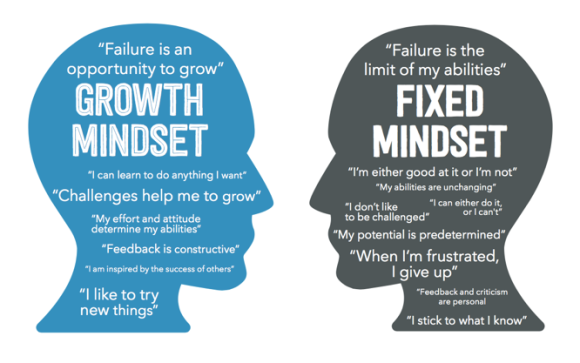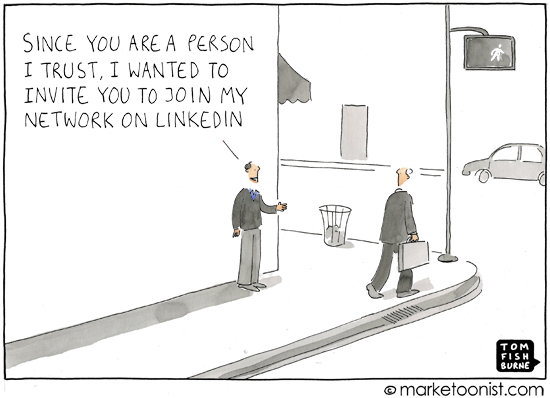I came across this video a few weeks ago, scrolling through my Facebook newsfeed while I was in the subway. The first half made me laugh out loud but also pressured to set my own goals for 2017 – then I lost signal and the video abruptly stopped playing.
Then, a few weeks later, someone else shared this video on Facebook, and I watched it for the first time to the very end. That was when everything changed.
Oh my god?! I thought to myself. IT TRICKED ME! As it turns out, the video wasn’t motivating me to set and accomplish my goals! In fact it was advocating for the complete opposite!
So I mean, we all kind of admit that if not done in a certain way, “setting goals” is a complete bullshit exercise. Remember when we were taught to set SMART goals in school? Let me just tell you, I was actually the one kid in class who paid attention, and even for me it didn’t work.
But at the same time, we can’t NOT set goals. We have to do it at work, we feel the need to do it for personal finances, and we spend more than half a year trying to work on our “summer bodies”. You can call it “goal setting” or something else, but the bottom line is, if we don’t consciously think about what we want to accomplish, then there is zero chance that we’ll just somehow miraculously get there.
Neuroscience and psychology have actually taught us a lot about goal-setting, and what makes it work. Without going into the technicalities, I’ve highlighted some major points for you to apply to your goals.
1. Your goals might not be what you think they are
When I start any six-month coaching engagement, I spend at least 2 of the 12 sessions setting goals with my coachees, and then at the beginning of every subsequent session, check in on how they feel about their goals. Setting goals is so important – the exact goal you set has a lot to do with how success you will be at achieving it.
There are two rules, quite simple ones, that you need to keep in mind when setting your goals:
1. It has to be sticky
I recommend your goal to be 7 words or less, and please, no more than 3 goals total. Practice saying it out loud. Are you having trouble? Then you won’t remember it, let alone act on it. Our brains are already burdened by so much stuff on a daily basis; add a long-term goal you have to keep thinking about day-in, day-out, it’s so tiresome! No wonder you set goals and then almost immediately don’t want to think about them again.
2 It has to make you feel good
Don’t use words like “Stop”, “lose”, or “avoid”. Anything you think about, your brain pays attention to, so if your goal is “Don’t eat food after 9pm at night”, it triggers your brain to immediately think about eating food at 9pm at night. If your goal is “Quit smoking by year end”, every time you think about it, it triggers your brain to think “I want a cigarette”. This creates a kind of psychological incongruence, and all this negative messaging puts your brain into threat mode – and it is hard to pursue your own goal that also puts your brain in threat mode. Instead, make goals that you aspire to, that would make you want to jump out of bed every morning full of energy and optimism. Instead of “Don’t eat food after 9pm at night”, make it “I want to feel sexy in my bikini this July.” Instead of “Quit smoking year end”, make it “I want to feel healthy like I can live to 100.” Better yet, visualize it. Think about walking down that beach in your bikini having guys hitting on you. Like, damn girl.
[A caveat to point #2: This works best if in the context of the goal, you’re “approach motivated”, meaning you’re motivated by things you can potentially gain. In certain situations, our goals may work better if we are “avoidance-motivated” – for example, I don’t want to fail the semester, I don’t want to have cavities from not flossing, I don’t want to die of lung cancer. From my personal perspective, being “approach-motivated” tends to work better in the long-run, because your actions are easier to sustain.]
2. Success is in the details
When people don’t achieve their goals, one of five things likely happened:
- Didn’t want it enough
- Was not clear how to do it
- Was unsure about the value of it – why do it?
- Deliberately re-prioritized and chose not to
- Simply got side-tracked
The most common reason? Not clear how to do it.
So your goal needs to be specific. Usually we say, the goal itself must be broad, motivational, and sticky – and it aligns more with your overall purpose (the “why”). Then comes the next level down of your thinking – the “how”. How are you going to achieve it? What specific milestones will you set for yourself? How will you measure your success at each milestone? What actions would you need to do to go from one milestone to the next?
This is really where the “rubber meets the road”. Most people will just set goals, and think this is enough – shocking that it isn’t. The aspirational part is always great – you get to sit there and daydream about how amazing your life can be. Then comes the hard work, and if you don’t consciously plan for what actions you’ll need to take, you’re stuck at the daydreaming part. Sorry.
There is a tool that can get you over the hurdle of inaction. It’s called “implementation intention” – alternatively called the “If/then plan“. Multiple studies have cited that those who use implementation intention in a controlled setting typically DOUBLE their success rate of goal-achievement. To apply it, think of most likely scenarios that would prevent or distract you from taking action towards your goal. For each scenario, write down, “IF [xyz situation occurs], then I will do [abc].”
For example,
- Goal: Be fit like a Victoria’s Secret model
- Implementation Intention: If I feel the urge to snack on unhealthy food at night, then I eat an apple instead.
3. Automate
Neuroscience tells us that neurons that fire together wire together (Hebbian theory). What this means is, while it’s hard to stop existing habits, it’s much, much easier to create new ones (and then the old ones that you don’t use anymore just die naturally). For any one of us, learning a new behavior (think on when you first learned to drive or ride a bike) is uncomfortable at first and requires conscious effort. But over time, you would have mastered it when you notice it coming naturally to you (requires no awareness, feels effortless).
To achieve a goal, habits must have formed in the process (i.e. automatic behaviors). This is necessarily going to be uncomfortable at first, painful even. But you need to trust the process, and trust your brain that over time, your unwanted habit will be pruned out, and you will be left with a new way of doing things that works better for you.
In the short-run, the biggest thing you can do for yourself to keep trying, is to dish out little rewards every time you’ve successfully fought the urge to ditch your new habit. These rewards can be material (e.g. a piece of candy), or social (e.g. let a few of your friends know your goal is to get more fit, and when you’ve worked out three times this week, get together with them for brunch to celebrate).
So there you go! 3 big ideas for starting on the right foot for 2017. What will your goals be? How will you achieve them? What will you do once you’ve achieved them? How will you reward yourself?
XOXO,
V

 I realize I have not posted in here for a LONG ASS TIME. That is because, my friends, when we are stressed out beyond a certain point, we cease to have the capability to generate any kind of useful insight about ourselves and about life.
I realize I have not posted in here for a LONG ASS TIME. That is because, my friends, when we are stressed out beyond a certain point, we cease to have the capability to generate any kind of useful insight about ourselves and about life.






